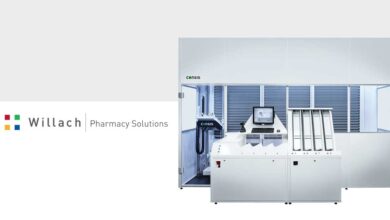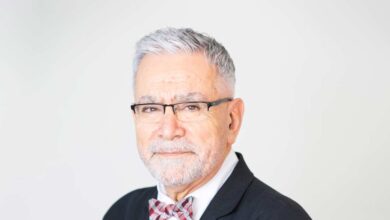Redefining Precision in Gastroenterology
Advanced ERCP with SPYGLASSTM at Al-Ahli Hospital
Dr. Alaa Taha, Consultant Gastroenterologist at Al-Ahli Hospital/Qatar
Gastrointestinal diseases, particularly those affecting the bile ducts and pancreas, often present diagnostic and therapeutic challenges due to the anatomical complexity and inaccessibility of the hepatobiliary system. Over the past decades, Endoscopic Retrograde Cholangiopancreatography (ERCP) has become a cornerstone in managing these disorders. However, traditional ERCP relies heavily on fluoroscopic imaging, which limits direct visualization inside the biliary and pancreatic ducts. Today, Al-Ahli Hospital in Doha, Qatar, is redefining this standard through the integration of the SPYGLASS™ Direct Visualization System, a breakthrough in cholangioscopy and interventional endoscopy. Under the expertise of Dr. Alaa Taha, Consultant Gastroenterologist, this technology has elevated diagnostic accuracy and therapeutic efficiency to new heights, positioning Al-Ahli Hospital as a center of excellence for advanced hepatobiliary care.
What Is SPYGLASS™ and Why It Matters
The SPYGLASS™ DS (Digital System) is a state-of-the-art cholangioscope that provides direct, high-definition visual access to the biliary and pancreatic ductal systems. Unlike conventional ERCP, which relies on indirect imaging via X-rays and contrast, the SPYGLASS™ system features a fiber-optic probe with a miniature digital camera that allows endoscopists to see inside the ducts in real time, offering unparalleled precision.
This enables clinicians to:
- Accurately diagnose indeterminate strictures and biliary lesions
- Target and retrieve intricate ductal stones
- Perform guided biopsies with greater confidence
- Treat complex disorders without the need for open surgery
“The clarity, maneuverability, and diagnostic certainty the SPYGLASS™ system provides are exceptional,” says Dr. Alaa Taha. “We now make faster and more informed decisions that directly impact patient outcomes.”
Clinical Indications: When Advanced ERCP with SPYGLASS™ Is Used
Dr. Taha highlights that SPYGLASS™-assisted ERCP is particularly valuable in complex and ambiguous clinical cases where traditional methods fall short. These include:
- Unexplained bile duct strictures (to differentiate between benign and malignant causes)
- Primary sclerosing cholangitis (to monitor for dysplasia or cancer)
- Cholangiocarcinoma or biliary tumors
- Difficult bile duct stones(especially in intrahepatic or narrow ducts)
- Recurrent pancreatitis or pancreatic duct stones
Through direct visualization, lesions can be biopsied with high yield, and targeted therapies such as laser lithotripsy or electrohydraulic stone fragmentation can be administered with pinpoint accuracy.
The Patient Experience: Minimally Invasive, Maximally Effective
One of the most profound impacts of the SPYGLASS™ system is on patient experience. Traditional diagnostics such as MRCP or CT often leave clinicians uncertain, leading to multiple procedures or unnecessary surgeries. SPYGLASS™ changes this by allowing both diagnosis and treatment in a single session. Key patient benefits include:
- Minimally invasive intervention
- Shorter procedure time and recovery
- Lower complication rates
- Outpatient or short-stay suitability
- Avoidance of unnecessary major surgery
Patients at Al-Ahli Hospital report quicker returns to normal life, lower anxiety from waiting on uncertain diagnoses, and better overall satisfaction due to the clarity and effectiveness of the procedure.
Case Example: A Life-Changing Diagnosis
Dr. Taha recalls a case involving a 47-year-old patient with a history of abdominal discomfort and abnormal liver function tests. An MRCP revealed a suspected stricture, but no conclusive evidence of malignancy. Using SPYGLASS™, Dr. Taha was able to visualize a suspicious mass, perform a targeted biopsy, and confirm early-stage cholangiocarcinoma. “Without SPYGLASS™, we might have missed the window for early diagnosis. The patient underwent curative treatment and is now under surveillance with an excellent prognosis,” Dr. Taha shares.
Training, Safety, and Expertise at Al-Ahli Hospital
Implementing such advanced technologies requires not just state-of-the-art equipment, but also well-trained professionals, rigorous safety protocols, and a patient-centered philosophy. Al-Ahli Hospital is proud to be at the forefront, combining world-class medical technology with highly skilled specialists like Dr. Taha. His expertise, built on years of experience and international training, ensures that each procedure is performed with technical mastery and compassionate care. The hospital also follows stringent infection control protocols, continuous monitoring, and post-procedure follow-up to ensure optimal safety and long-term outcomes.
Positioning Al-Ahli Hospital as a Regional Leader
By adopting SPYGLASS™ as part of its advanced interventional endoscopy suite, Al-Ahli Hospital has positioned itself as a regional referral center for hepatobiliary cases. The institution is recognized for embracing precision diagnostics, investing in continuous medical education, and fostering innovation across all departments. It is also playing a role in educating local and regional physicians about the possibilities of cholangioscopy, hosting workshops, symposiums, and live procedure demonstrations, further reinforcing its role as a leader in minimally invasive medicine.
Looking Ahead: Future Applications and Research
As technology evolves, the SPYGLASS™ system is expected to expand its indications further, potentially integrating with AI-assisted diagnostics, robotic navigation, and real-time pathology tools. Dr. Taha and his team at Al-Ahli Hospital are already engaged in data collection and clinical audits to evaluate procedural outcomes, patient satisfaction, and diagnostic yield, aiming to contribute to regional and international gastroenterology literature.
“Innovation must always serve patient care. That’s our philosophy,” Dr. Taha concludes.
Conclusion: Where Vision Meets Precision
The integration of SPYGLASS™ technology at Al-Ahli Hospital marks a pivotal shift in how gastroenterological conditions are diagnosed and managed.
Patients no longer need to navigate uncertainty, undergo repeated imaging, or face the risks of exploratory surgery.
With direct visualization, targeted therapy, and faster recovery, the future of biliary and pancreatic care is here, and it is crystal clear.
For those seeking accurate, minimally invasive, and world-class care, Al-Ahli Hospital remains the destination of choice, with Dr. Alaa Taha leading the way in excellence and innovation.















